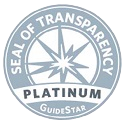Celebrating the Women of Hand in Hand: Zohar Shahar

Meet Zohar Shahar
Zohar is a Hand in Hand parent, the former Wadi Ara community organizer, a founding member of the Hand in Hand “Bridge over the Wadi” school, and co-facilitator of the cultural dialogue “Madrassah” in Wadi Ara. She is a filmmaker and co-founder of the non-profit organization Medical Wadi, a joint Arab-Jewish initiative which supports the establishment of a medical center in Wadi Ara to provide the diverse local communities with bilingual facilities, resources, health education, and high-quality medical services tailored to each population’s needs. She is currently writing and directing films alongside Akko-based filmmaker Jamal Khalaila.
“I’ve been a mother at ‘Bridge over the Wadi’ since 2005. I have three daughters who graduated from the school, and a son who is currently in fourth grade. I became an active member of the PTA and started to become more engaged with social and political issues. Then I became the school’s community organizer for a time, and later on became a founding member of an organization called ‘Neighbors of Peace.’
In 2018, I collaborated with other members of the Wadi Ara Hand in Hand community, and launched an initiative called Medical Wadi, which is a non-profit organization that is working to establish a medical center to promote the public health of the local Wadi Ara population. When Medical Wadi first started, I used my skills as a community organizer to enlist dozens of doctors and professors in the field of public health to act as an advisory board for the launch of our medical center, alongside my partner Samah Masalha—a fellow ‘Bridge over the Wadi’ parent and community member. The two of us led this initiative, and built it from the ground up.
Everything that I do can be traced back to Hand in Hand. Through the Jewish-Arab partnership being built at Hand in Hand, I came to understand how compelling and important this work is. As a mother and later a professional, I learned skills that enabled me to articulate where I stand politically.
During my time as a Hand in Hand community organizer in Wadi Ara, I managed the alumni program, and we were looking for a dialogue facilitator for alumni in Jerusalem. I invited Rana for an interview, and that’s how we met. We spoke for four hours that day, and by the end, we knew we wanted to work together.
The Wadi Ara ‘Madrassah,’ which Rana and I run, is a workshop that deepens participants’ cultural and political awareness through the lens of Israeli and Palestinian films. Rana and I developed the syllabus for this class. We do not see this workshop as a platform for arguments or conflict between opposing stances. Through film screenings, we facilitate open and raw discussions, which are neither aggressive or defensive. There is something almost spiritual that happens in a movie screening; people become more emotionally vulnerable. We use that moment as a starting point for very personal conversations. We ask about participants’ family stories and daily experiences—about their moments of despair and hope, their personal wins and losses. When we talk about ourselves personally, it provides a great opportunity to deepen our understanding of one another—women and men, Arabs and Jews, and even ourselves.
At least half of the films we screen are created by women. It is important for us to represent women’s perspectives, especially those that are not often told, like Mizrahi or Bedouin women. Many of the women who participate in the ‘Madrassah’ are already leaders and activists, and yet this workshop has invigorated something in them—a desire to take a stand and lead something about which they feel passionate. This program offers a platform for that sort of leadership to blossom, and also helps participants see what concrete steps they can take to create change.
I think it is important for more women to take up leadership positions within shared organizations and Jewish-Arab communities. We need to build up our women leaders—it’s time that we lead the conversation. There is something unique about our ability to create dialogue—a capacity to be less defensive, less aggressive, and more honest.”









